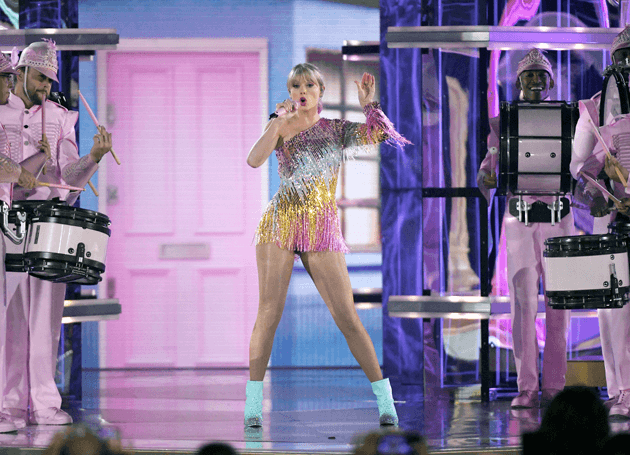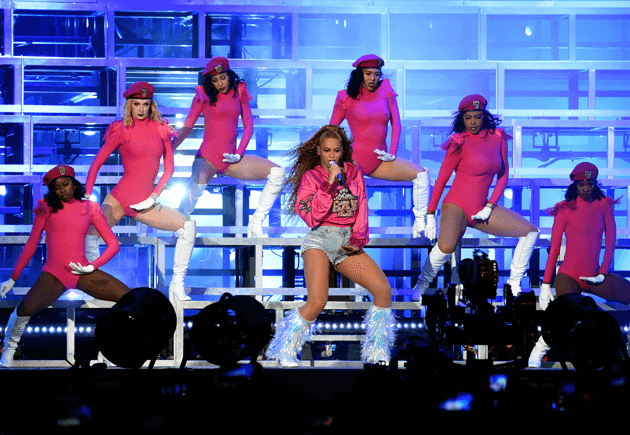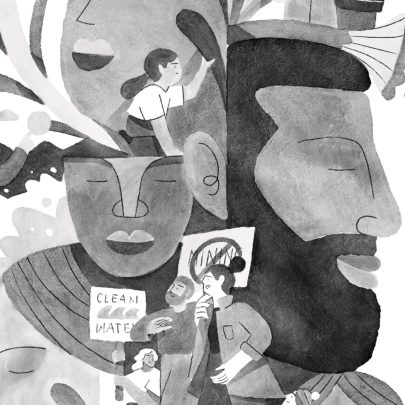May 16, 2019 Society
Once the domain of excited children and a few distinctly nerdy adults unquestioning, obsessive fandom over everything from Taylor Swift to the Marvel universe is now regularly performed online in an ever-more obnoxious display of uncritical devotion, writes Joe Nunweek.
In China, a woman is hospitalised for crying too hard at Avengers: Endgame. On a Facebook group, a moderator announces making fun of Harry Potter is henceforth to be considered ableist (“no, it’s not a reach”). Across countless animation labs, non-unionised and overworked designers are called back into work and force fed Red Bull so as to remedy an unsuitably childish Sonic the Hedgehog in time for his gritty CGI reboot.
This is what it’s like to be somewhat-to-medium online in the year of our lord 2019 and watch pop culture events drop like big, obvious anvils. They trigger an avalanche of gushing takes, hyperbolic excitement, hectoring explanations about their crumbs of representation, and pointless comparisons trying to decide which is better than which – as if it matters.

A huge number of people have turned their consumption of media into a performance of identity, assertively centring it at a level that we’ve never really seen before. The intensity of this performance has surely been encouraged by the endless, maximal scroll of social media and its ability to alternately hammer out one’s enthusiasm and rage without a second thought. This excitement used to be the preserve of a particularly fanatical kid – I remember being at the family dinner table virtually 20 years ago today and driving my parents mad, unable to shut up about the finer points of Star Wars chronology after watching the trailer for The Phantom Menace.
Star Wars is one of many modern cultural behemoths encouraging you trainspot a bunch of internal universe miscellany and pat yourself on the back for identifying the constituent bits. It’s a classic pop culture Easter egg hunt. Children love an egg hunt – they invest very strongly in fictional or transportative universes, whether it’s Stormtroopers or the more diffuse world-building of a pop star, and that’s fine. It’s a time when kids can be excited by escapism and use it to be imaginative themselves without falling into a tedious rigidity about the canonicity of books over film and TV adaptations. There’s actually nothing infantile about an inspired young kid filling line after line of refill with a story about them and their classmates becoming wizards. It’s growth – a flexing of creative muscle. The same can’t be said for the adults in thrall and frenzy to J.K Rowling’s latest online pronouncements about what was really happening in books written a decade ago, or who insist they are a Ravenclaw like that’s something you are obliged to consider and respond to.
To extend the egg analogy, the current state of fandom is like if a child were to wake up to start the search on Easter Saturday only to discover they had been beaten to the punch by hordes of adults digging holes in the garden, fighting and screaming with each other, pocketing the foil with chocolate smeared around their mouths. An aggressive, trite and performative devotion to pop culture has flourished in the age of the internet, untethered almost completely from the quality of the source material.

I’m talking about the kind of people who post the “let people enjoy things” meme, quite possibly the most irritating response to mild criticism of mass media you could come up with. Look, I love letting people enjoy things. I just wish they’d do so without edging “I’m a Hufflepuff” or the Yoda voice into unrelated conversations in real life; that they wouldn’t post debilitatingly undignified things like “concentration camp guards were just ‘doing their job’ too” when a film critic says they didn’t like Detective Pikachu, and that they wouldn’t turn the simple pleasure of listening to something into a pissing contest of seeing who is the loudest or most-dedicated fan, and see winning that contest as a virtue.
When people say ‘let people enjoy things’ they never mean we should let people enjoy intrinsically valuable things like their gardens, their families, or their holidays. They mean people should be able to talk about a multi-million dollar medieval fantasy franchise or a computer game forever without someone else saying “not really feeling it, champ”.
Traditionally, obsessive fandom has confined itself to a recognisable kinds of nerdiness – Star Wars, Dr Who, video games. But we can no longer compartmentalise what I’m describing to genre franchises alone. Rosa Lyster’s important piece for Popula captured this sentiment best: being a “nerd”, in the sense of taking a facile, unvaried and bombastic approach to one’s interests and manifestations, is no longer confined to what understood to be traditionally nerdish pursuits.
Take, for example, the recent releases by both Taylor Swift and Beyoncé. If you were to spend five seconds on Twitter’s ‘Moments’ tab amid its pull-out-the-stops rollout (countdown clock and all!) you’d see how Swift’s new song “Me!” was painstakingly dissected as a series of Easter egg hunts for an adult audience. Hop over to YouTube and functioning, nominally professional humans dedicate exclusive video content to whether an engagement ring symbolises wedding bells or the imminent leak of her new cat. Theories abound on what a split-second background clock symbolises in terms of future release dates. Swift, in on the game and very savvy, has subsequently revealed that a vertically-integrated video for the (genuine bop) “Delicate” was a two-year advance guard for the palette of her next album cover. In many ways, “Me!” is there to be consumed like a Star Wars or Avengers trailer.

A week before “Me!” came Beyoncé’s Homecoming, an instantly definitive live album that has the hallmarks of being a generational standard. Where “Me!” offers what I’d call the convergent model of pop culture – most of the references, inside jokes, symbolism, et al lead back to the world of Taylor itself, Homecoming is what I’d suggest is a rarer example of the divergent model. Visually and sonically, it interpolates and plays homage to a range of black musicians, activists, designers and history, while inviting those at home to learn more.
These qualities are essential if pop culture is to flourish, evolve, and be inclusive. But, here’s the thing – the superior quality of Beyoncé’s latest release is not significantly reflected in the internet’s reaction to it. Both Swift and Beyoncé are experienced as an endless miasmic churn of gif reacts, of people for whom the height of wit is captioning their photos from last weekend with “Look what you made me do” or “I woke up like this”, whose peak sociological insight is to call a woman in a position of entrenched and hierarchical power a flawless queen or to whom any criticism is met with a round of “shake it off”; an identification with two of the most popular artists on the planet as a unique mark of distinction. At least one of them is being smoothed over until they’re a less complicated and confrontational figure to achieve this. Both are now fodder for the same fundamentally childish impulses which make up performative fandom.
These are prosaic complaints, and they have prosaic solutions. Delete the apps. Throw my phone in the lake. Find a warm cave somewhere remote and far from any signal. Surely the nerds cannot find us here.






